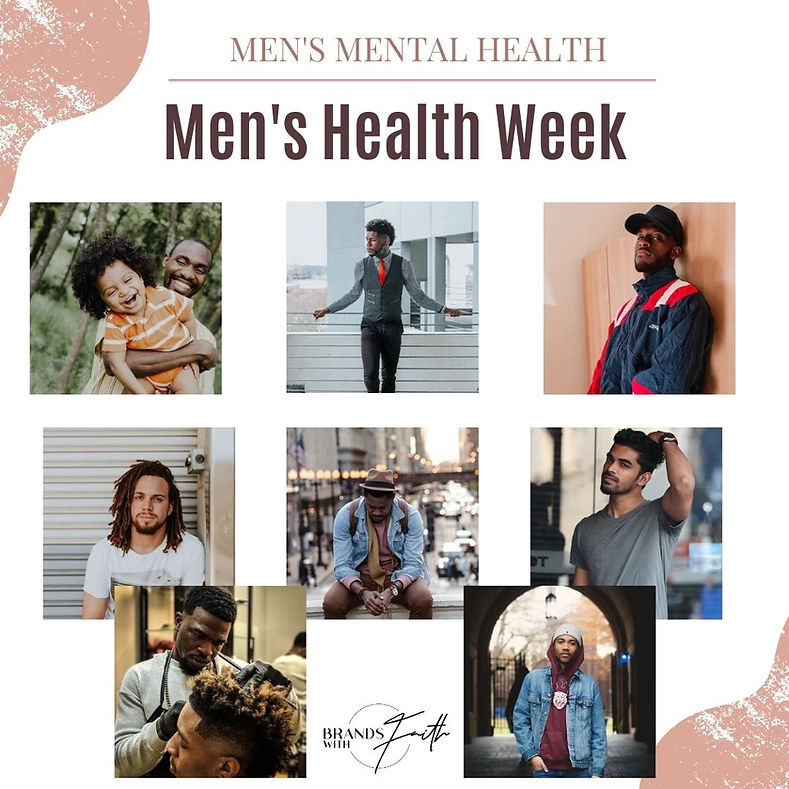
SUMMER 2022
%20(Instagram%20Story)%20(Instagram%20Post).jpg)
MEN'S MENTAL HEALTH
In honor of Men’s Health Week, we want to highlight men’s mental health. This topic is not often discussed in the African-American or minority communities. Black Americans experience similar rates of mental illness as other Americans, and sometimes at higher rates. As we have seen in recent year, opioid addictions and deaths among men have risen, and studies show that some of this is due untreated mental health issues. Men are self-medicating instead of seeking mental health advice and services. Black adults living below the poverty income level are more than twice as likely to report serious psychological distress as U.S. adults who enjoy greater financial security, according to the U.S. Department of Health and Human Services’ Office of Minority Health.
Black men are not receiving the help they need for their mental health problems. Also, some black men are not seeking mental health services because of stereotypes, such as “men are supposed to be strong, “men aren’t supposed to show weakness,” etc. A recent study showed that only 26.4% of Black and Hispanic men ages 18 to 44 who experienced daily feelings of anxiety or depression were likely to have used mental health services, compared with 45.4% of non-Hispanic White men with the same feelings.
When Black men do seek help many of them would prefer a same-race provider, it can be difficult finding Black psychologists, since they still make up only about 4+% of the doctoral-level psychology workforce. However that number is growing, according to 2018 APA Center for Workforce Studies Data.
Mental health problems are common among boys/men in the criminal justice system, which has a disproportionate representation of racial/ ethnic minorities. Approximately 50% to 75% of youth in the juvenile justice system meet criteria for a mental health disorder. Racial/ethnic minority youth with behavioral health issues are more readily referred to the juvenile justice system than to specialty primary care, compared with white youth. Minorities are also more likely to end up in the juvenile justice system due to harsh disciplinary suspension and expulsion practices in schools. Some of these behavioral problems could lessen with alternatives such as mental health services and programs in our schools.
Barriers to Care
Factors affecting access to treatment by members of diverse ethnic/racial groups may include:
• Lack of insurance, underinsurance
• Mental illness stigma, often greater among
minority populations
• Lack of diversity among mental health care providers
• Lack of culturally competent providers
• Language barriers
• Distrust in the health care system
• Inadequate support for mental health service in safety net settings (uninsured, Medicaid, Health Insurance Coverage other vulnerable patients
If you or someone you know is seeking mental health services, and need helping locating services; email us at info@brandswithfaith.com.
The statistics and stigmas.